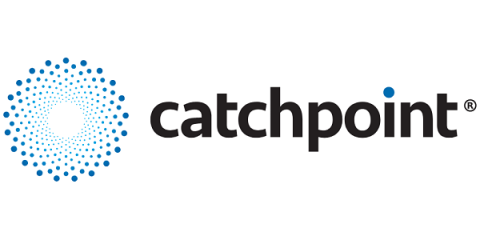Operations | Monitoring | ITSM | DevOps | Cloud
April 2021
How To - Monitor Split Tunnel Traffic with Catchpoint
When the world transitioned to a remote workspace, one of the things that most of us figured out quickly was that some applications just don’t work well with corporate VPN. Video and voice applications, like Microsoft Teams, are essential to business operations. I wouldn’t want to add another point of failure that I’d need to troubleshoot if I didn’t have to.
Catchpoint Announces Native Support for Google's Core Web Vitals
Five Reasons to Use Catchpoint for Measuring Core Web Vitals
We are in this together. As part of our continuous efforts to meet customer expectations, we have recently added Core Web Vitals to our performance measurement programs. We are happy to share that these metrics are now a native part of the Catchpoint Platform. DevOps’ SREs, Platform Operations Engineers, and business and monitoring strategists alike will realize a series of key benefits from this addition.
Monitoring DNS Performance The Right Way With Catchpoint
The Domain Name System (DNS) is at the core of the engine that keeps the internet running. We have explained how DNS works and why it is critical to the functioning of the internet in our Synthetic Monitoring Guide. The DNS resolution relies on various components, such as the DNS resolvers, name servers, authoritative servers, and zone files, to function properly and the process typically takes milliseconds to complete.
DEM and secure connectivity vendor offerings: the fox & the henhouse
A typical service delivery chain starts from the device and runs through the network and all the way through to the application. There are many things that can go wrong along the way! It’s critical to monitor that experience and quickly understand where issues occur, why they occur, and what can be done to remedy them. That’s where employee and/or customer Digital Experience Monitoring (DEM) comes into play.
Vodafone Idea BGP Leak - Global Routing System Must Implement MANRS
At the end of last week, a significant BGP leak caused widespread network outages that impacted major network operators, cloud, and CDN providers. The incident on Friday, April 16th, 2021 was (yet another) classic origin hijack case from Vodafone Idea (AS55410), an Indian operator based in Mumbai and Gandhinagar. The Vodafone Idea ASN was inundated with traffic,13 times higher than average, leaving its users unable to access the internet.
Boost Sales Productivity With Endpoint Monitoring
If Salesforce is slow, your sales team productivity is slow. Being able to look up opportunities and close deals is essential to getting business in the door. A downtime or a slow loading application can disrupt the sales process. Such a delay can result in revenue loss and increased toil as your operations teams are in constant firefight mode.
Multi-Cloud Management: What Do You Need to Know For 2021?
This year, our team at Catchpoint put together the IT Monitoring Trends 2021 Report. We focus on seven key trends that will shape year two of our new, unstable normal. The goal: to help you as either a “boots on the ground” engineer or a C-level exec to know what to expect of the year ahead. We also share actionable best practices for how to shape your IT monitoring strategy. Multi-cloud and hybrid-IT management is one of the seven trends.
Catchpoint Announces Virtual SRE Community Event on June 10
Improve Monitoring and Observability With The Catchpoint and Sumo Logic Integration
Sumo Logic is a cloud-based log management and analytics service that leverages machine-generated big data to deliver real-time IT insights. We’re excited to share that you can now easily integrate Catchpoint and Sumo Logic, giving you a number of fantastic benefits. The integration involves pushing data from Catchpoint to Sumo Logic using Webhooks and then query the data to build visualizations. Why do we use Webhooks?
Catchpoint Releases Enhanced Version of the WebPageTest API
Resolve Network and VPN Performance Problems Faster with Endpoint Monitoring
IT professionals are now adapting to remote environments and learning to manage a distributed, homebound workforce. In recent conversations with IT pros, many have cited that connectivity/VPN and home network issues are their top challenges but they lack the visibility to diagnose and troubleshoot these problems. Catchpoint for employee experience monitoring gives IT teams what they need: visibility from remote users’ devices to any business-critical application across any network.




